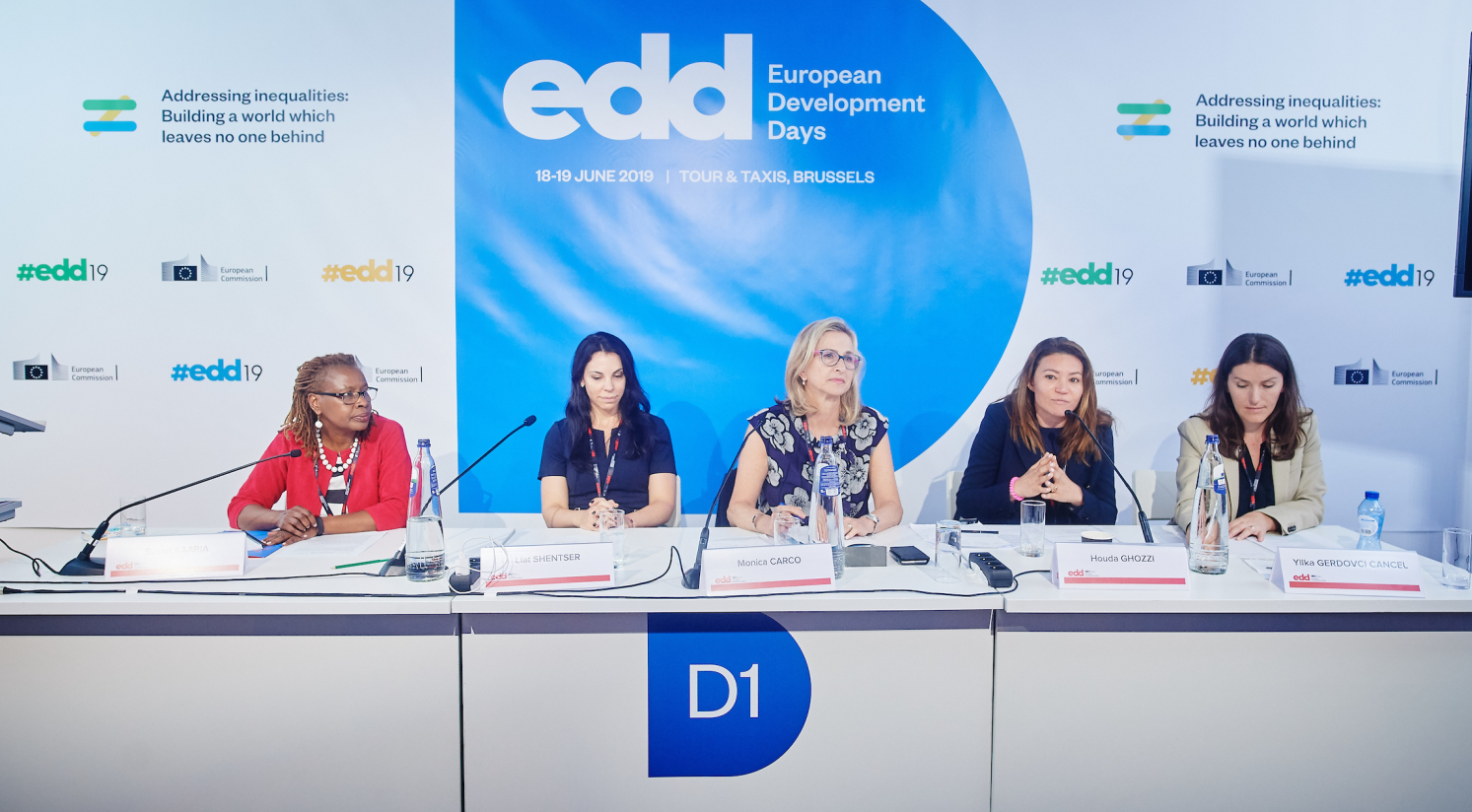How digital technology can support gender equality in the MENA region
19 June 2019

BRUSSELS, 19 June 2019 – In line with the European Development Days 2019's overarching title ‘Addressing inequalities: building a world which leaves no one behind’, UNIDO organized a LAB Debate on 19th of June on “How can digital technology support gender equality in the MENA region?”, in cooperation with the Food and Agriculture Organization (FAO) and UN Women. Tackling gender inequality is an intricate and lengthy process, but digital technology can help fast-track progress. Digital transformation gives women the possibility to access finance, integrate into national and even regional and global value chains, as well as access knowledge. Although bridging the digital gender divide cannot solve all the challenges that women in the MENA region face, it carries significant potential towards gender equality.
“Now is the time to upgrade the engagement model and move from enablement to the power of role models to unlock the full potential of the talented women of the MENA region,” said Liat Shentser, Director of Systems Engineering Sales at Cisco Systems International.
Moderated by Monica Carcò, Chief, Rural Entrepreneurship, Job Creation and Human Security Division, the session discussed and showcased i) how policy and regulation can best optimize incentives for market players to innovate, compete and invest along gender-sensitive technologies in the MENA, ii) the role of ICTs in facilitating women's integration in value chains and iii) the type of partnerships that have proven effective in engaging women both as consumers and producers of digital technologies. Carcò said, “To support women-led businesses in taking full advantage of ICT, well-informed programmes and policies addressing their specific challenges and needs are a prerequisite. To this end, UNIDO is soon to launch a survey on women entrepreneurs' access to and use of ICT and digital technology in the MENA region.”
The insightful panel discussions resulted with numerous recommendations, including the need for well-informed policies, data collection and monitoring of created impact. Equally important, making women part of the decision-making process, having more investments in technologies that are targeting women, and promoting women role models, particularly those in middle to top management positions, will play a significant role in limiting the gender-blind approach in innovation. Finally, designing and building up impact-driven public-private partnerships remain a key enabling modality to deliver concrete results.
For more information please contact:
Monica Carcò
Chief, Rural Entrepreneurship, Job Creation and Human Security Division